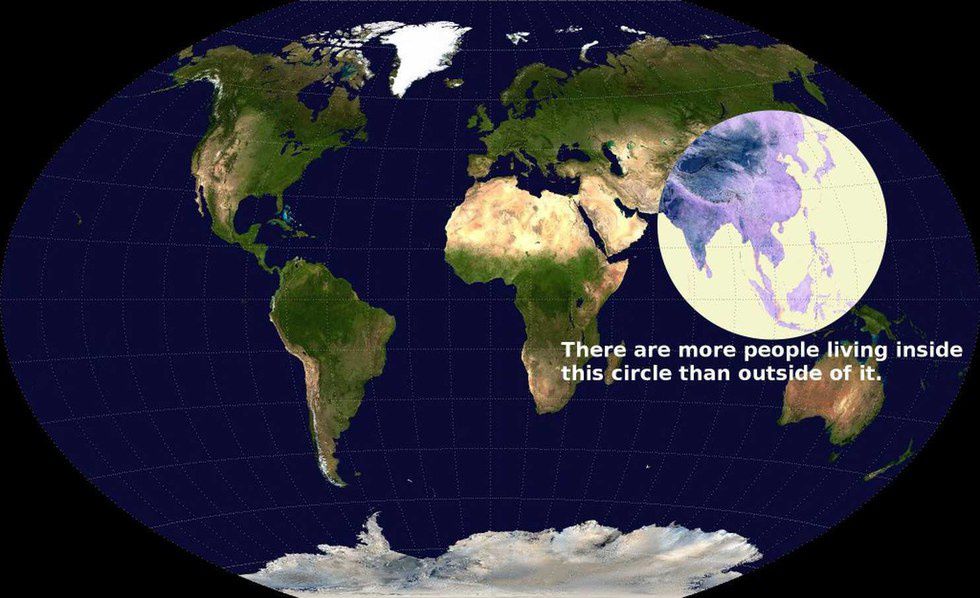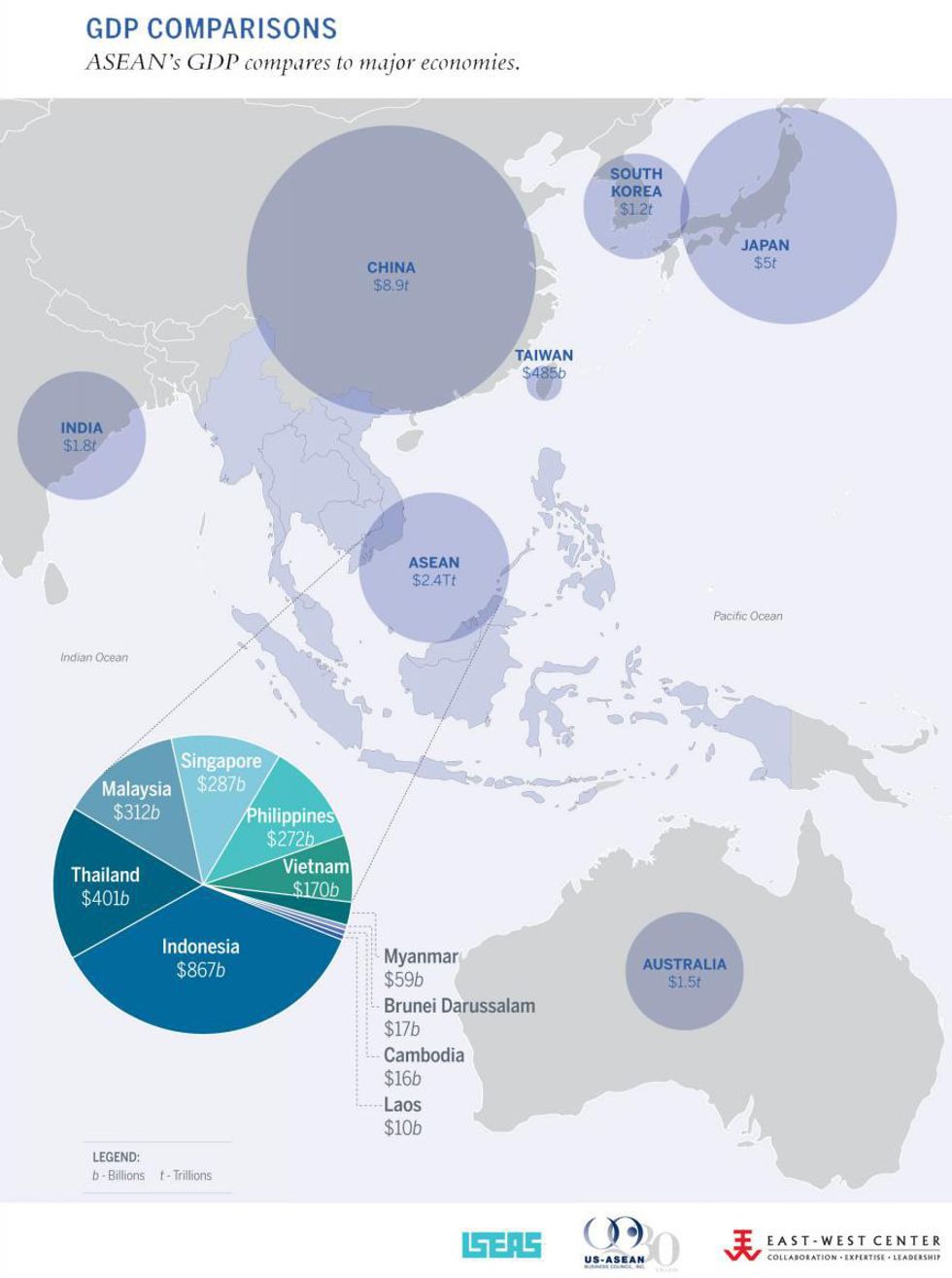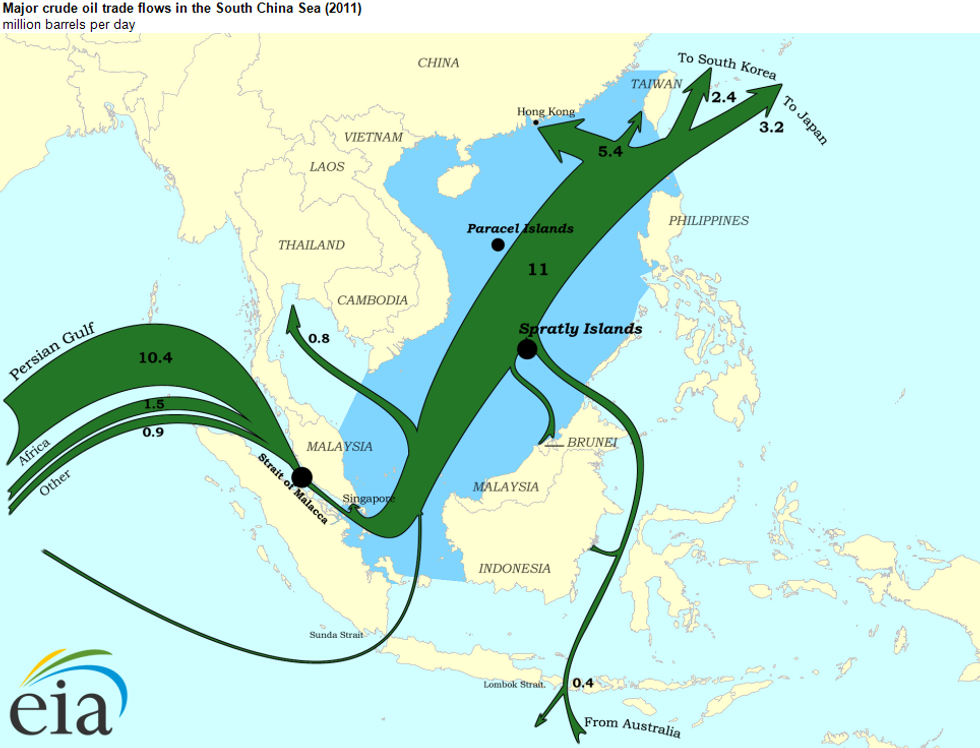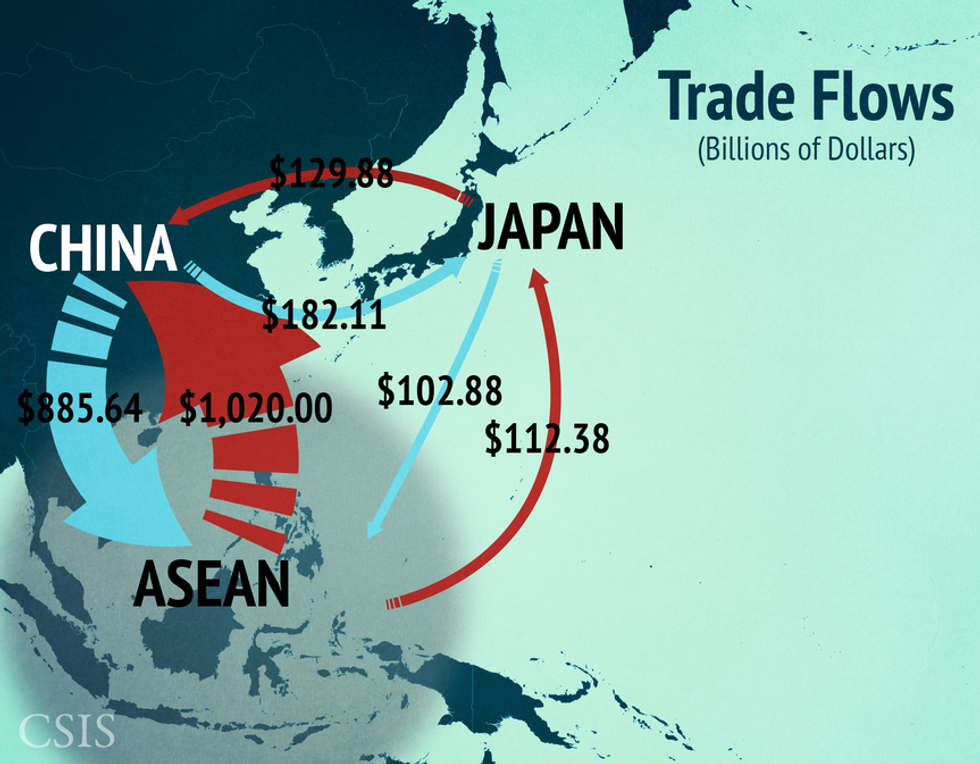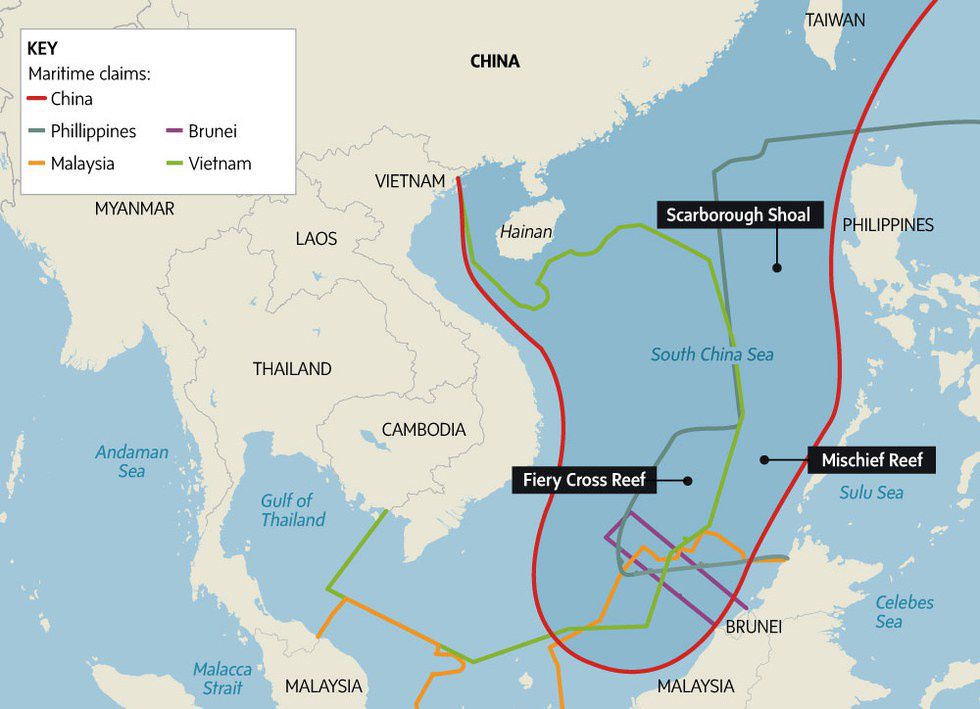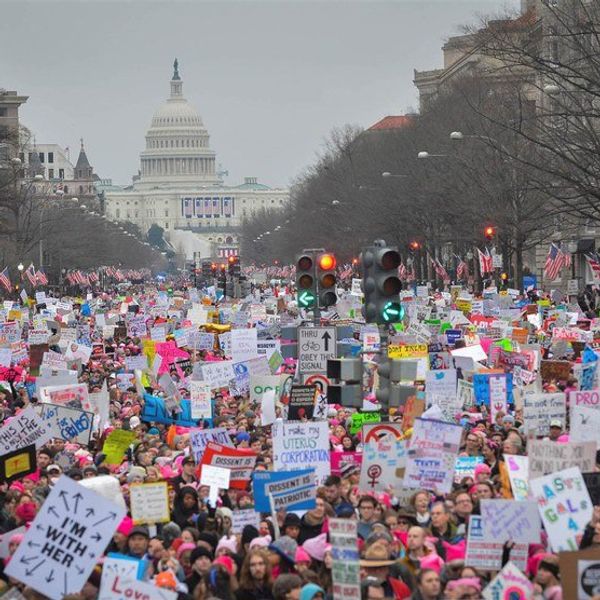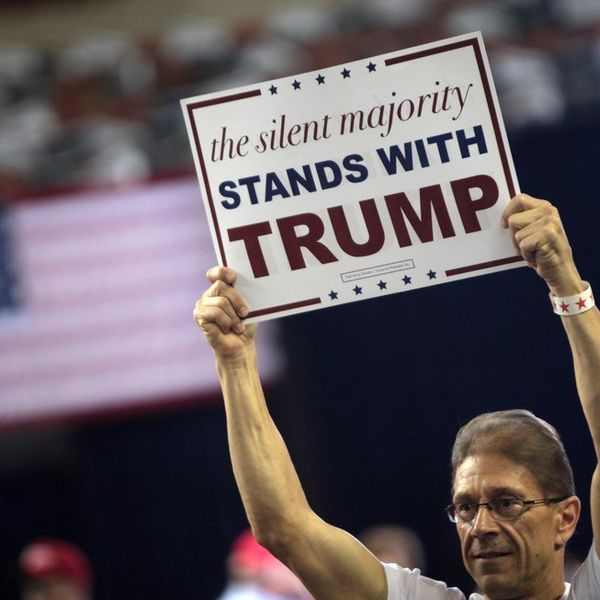President-elect Donald Trump will face a world in transition when he is inaugurated in January. There are a series of issues in every geopolitical theater across the world that the U.S. has strategic interests in. From the hell that is Syria and the battle for Mosul in Iraq; from the foundational crises that Europe faces to the geopolitical chess game in the East Asian seas, the United States faces a series of decisions that will affect the world for decades. As the future President, Donald Trump will be at the helm of many of these decisions. Over the next few articles, I will attempt to illuminate these issues and explain their significance to the world and what interests the U.S. has. We will start with the South and East China Seas.
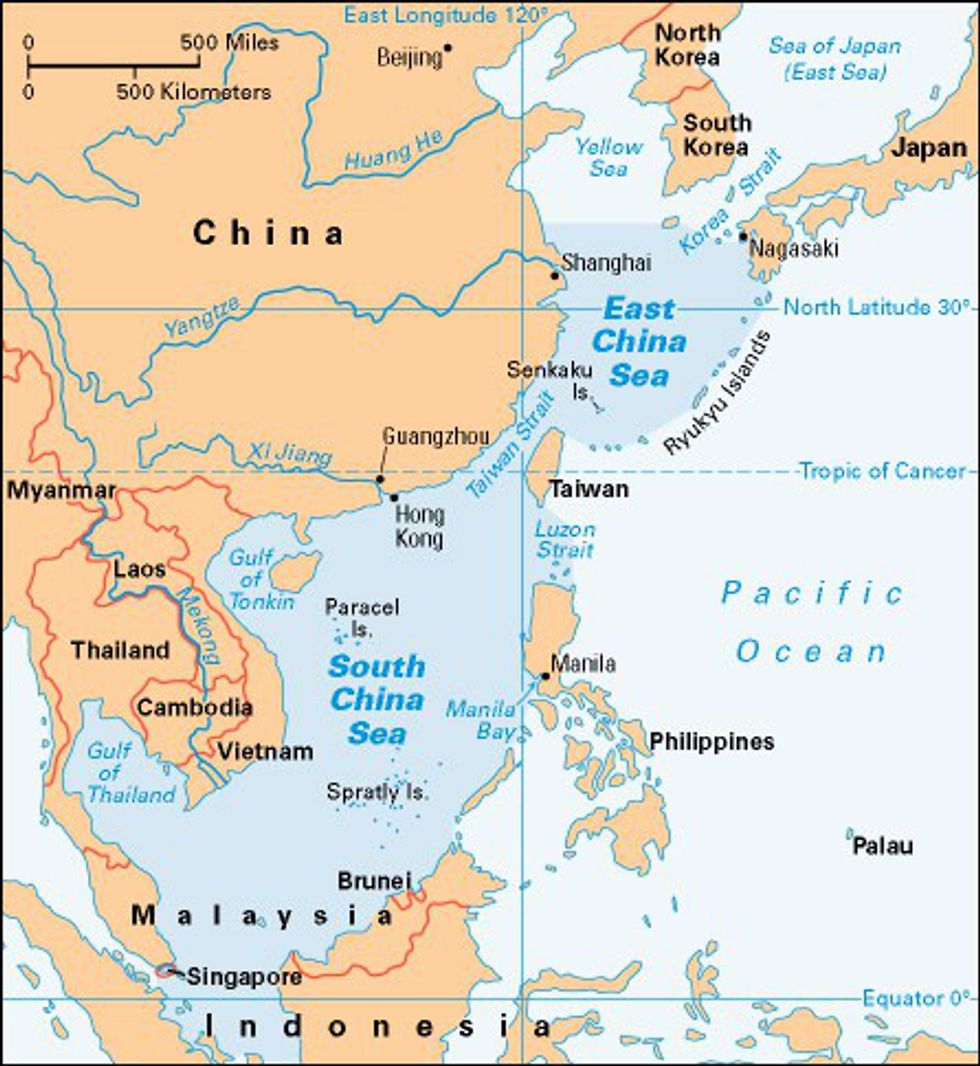
That's an awful lot of countries. I hope they can all get along...
The South and East China Seas are two distinct bodies of water. The East Sea is bordered by China, Japan, and South Korea. The South Sea is bordered by China, the Philippines, Malaysia, Indonesia, Vietnam, Brunei, and Singapore. Taiwan sits at the crossroads, straddling both seas. There are also a bunch of islands throughout both seas: the Scarborough Shoal, the Spratly Islands, the Paracel Islands, the Ryukyu Islands, etc. These islands are tiny and many of them are uninhabited. But I promise that they’ll be important later.
Now let’s talk a bit about the countries themselves. The Asia-Pacific is the most economically dynamic region of the world. China and Japan are the second and third largest economies in the world, respectively; South Korea and Taiwan are developed countries that are hugely important to international trade; and Vietnam is a supplier of cheap labor that provides low-tier goods throughout the world. Most other countries in the region are heavily populated and all are active participants in the world economy. But don’t just take my word for it:
This picture always terrifies and fascinates me
ASEAN= Association of South East Asian Nations. China can't sit with them
We’ve talked about the countries surrounded by all this water. Now let’s delve into the water itself. The World Bank estimates that the South China Sea has oil reserves of at least seven billion barrels and 900 trillion cubic feet of natural gas. To put that into perspective, the Persian Gulf, the single greatest concentration of oil and natural gas in the world, had an estimated reserve of 728 billion barrels of oil as of 2006 and over 2500 trillion (2.5 quadrillion) cubic feet of natural gas. The resources of the Persian Gulf are clearly gargantuan, but the South China Sea is significant in its own right. The East China Sea is of a similar, yet smaller, scale. The U.S. Energy Information Administration estimates 200 million barrels of oil in provable reserves and 1 to 2 trillion cubic of natural gas. It is important to note, however, that neither sea has been fully explored yet. As technological capability improves, more resources can be found. All it takes is for a company to be lucky and start drilling in the right spot.
Now let’s talk about what travels on the water. Namely, anything and everything that is traded among the global community sees its way across these waters. Over $5 trillion in international trade passes through the South China Sea annually. About $1 trillion of that figure heads for the U.S. More than 60 percent of all global oil shipments pass through the Straits of Malacca, near Malaysia, and is dispersed throughout the region. Moreover, eight of the world’s ten busiest port cities are located in the Asia-Pacific.
The Straits of Malacca are a major chokepoint for oil and gas
$$$- This, my friends, is what they call mad guap
So we’ve established that this is an economically vital region of the world. More importantly, we understand why. Now, let’s establish one final thing: the UN Convention on the Law of the Sea states that each country with a maritime border has something called an exclusive economic zone (EEZ). An EEZ is an area of 200 miles off the coastline that a country has sovereign rights over. A country can preserve or exploit this land as it sees fit. This is the legal framework in which Hawaii fishes for food in the Pacific and Texas establishes offshore wind farms in the Gulf of Mexico. This UN granted right encompasses islands that belong in the jurisdiction of a country.
This is where the islands in the Asia-Pacific come into play. In fact, this is where everything comes together. We’ve taken our sweet time in setting the elaborate table that is the Asia-Pacific; now we can witness how everything crashes together to make one terribly incoherent meal.
China has become increasingly aggressive over the years in the South and East China Seas. In 2009, China laid claim to almost the entire South China Sea through its infamous 9-Dash Line. Every country in the region disputes this line that China has drawn because it clashes with islands that they recognize as within their own respective jurisdiction. An international tribunal at The Hague recently ruled against China over the legality of its 9-Dash Line. China, of course, subsequently stated it does not recognize this ruling. This is not surprising: countries routinely reject international law when it does not fulfill their unique interests. As an ascendant country, China has greater latitude than smaller countries to reject such a ruling without major consequences. In fact, China has flouted international law several times by provoking foreign ships in the region.
In 2011, Chinese patrol boats cut underwater hydrophone cables of a PetroVietnam ship that was surveying for natural resources. Vietnam claims that the survey ship was operating in its EEZ, which China claims is a part of its 9-Dash Line. Essentially, both countries accuse each other of invading its own EEZ. In 2012, the Philippines found Chinese fishing vessels anchored off the Scarborough Shoal, an island geographically closer to the Philippines than China. In response, the Filipino navy deployed a warship to apprehend the fishermen. Let the gravity of that sink in—a warship to apprehend civilians.
You see that red line that looks like it has problems with all the other lines? That's China in a nutshellThe Asia-Pacific is replete with these kinds of incidents. As China grows in economic and military prowess—coupled with a perception of American withdrawal from the region—it is emboldened to take aggressive actions towards its neighbors that threaten the stability of one of the busiest areas of the world. Its neighbors, on the other hand, sometimes act in ways that up the ante, if not outright retaliation. The deployment of a warship to apprehend civilian fishermen exemplifies this dynamic. The region is locked in game of quid pro quo- a fancy way of saying tit-for-tat.
China is also building artificial islands throughout the region by shifting sediment from the ocean floor onto existing reefs. These artificial islands are then installed with runway strips and refueling stations for planes. This serves two purposes. First, they are claimed as part of sovereign Chinese territory, that then extend China’s EEZ. In theory, this allows China to exploit the seas and explore for more energy resources. In theory, the international tribunal ruling should prevent China from doing such a thing, but China has politely told that tribunal to go fuck itself-- all through diplomatic channels, of course. Second, the islands provide fuel stops for Chinese ships. China is strategically building the capacity for its military to maintain sustained patrols of the South and East China Seas. As of now, the U.S. is the only country with the military capability to maintain constant surveillance of that region. As such, the United States Navy is the anchor that provides stability and security in the Asia-Pacific and ensures a seamless flow of trade and commerce. An authoritarian country like China that does not necessarily embrace capitalism as a foreign policy objective can upend this status quo, if it has the capability. China is working towards that capability. What countries are afraid of is what it will do with that capability. Moreover, as China continues to infringe other countries’ rights regarding EEZs, the region will remain a flashpoint for tension. This is dangerous for geopolitics and for business.
The Asia-Pacific is hugely important. The U.S. has a strategic interest in maintaining stability because there is so much business and potential economic growth in the area. Local countries have an interest in stability because the billions of people who live there could be endangered. Of course, China’s ascension and other countries’ reactions do not necessitate conflict. Foreign policy is determined by individuals and what they calculate their countries’ interests to be. There is no single malignant force that inevitably guides the world towards conflict; rather, it is the methods through which we chase our interests that lead to consequences. President-elect Donald Trump will be faced with the decision of whether the U.S. should withdraw from the Asia-Pacific at a time when involvement is paramount. His choice will lead to consequences that will be felt in the Asia-Pacific and the world.




